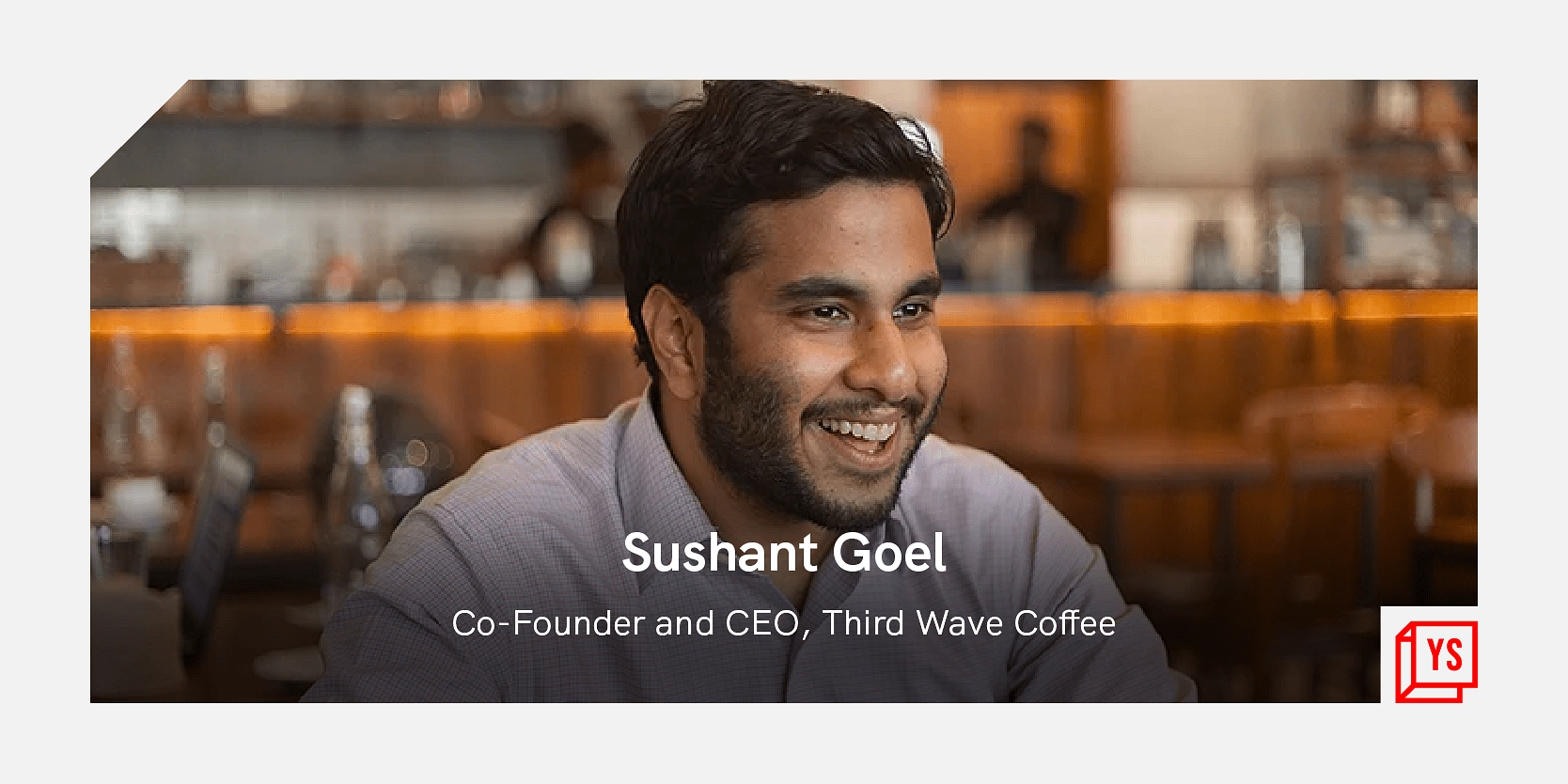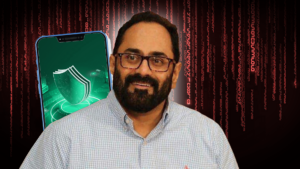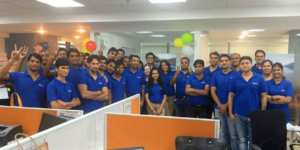Life happens, coffee helps!
The busyness of daily life means no one can do without this beverage, leading to the launch of numerous coffee QSR chains across India, including .
Founded by Ayush Bathwal, Anirudh Sharma and Sushant Goel in 2017, Third Wave Coffee offers locally-sourced coffee brews and curated food and beverages. In the past 12 months, it has expanded from 10 stores to 35 outlets in Bengaluru, Delhi, Pune, and Hyderabad.
In this interview with YourStory, Sushant Goel, Co-founder and CEO, throws light on how the COVID-19 pandemic impacted Third Wave Coffee, and how it has planned store expansion across the country despite the uncertainty.
YourStory [YS]: What are your plans for the Mumbai launch?
Sushant Goel [SG]: Over the next 15 months, we plan to have between 150 and 200 locations across metro and Tier-I cities in India.
The three primary cities are Mumbai, Delhi, and Bengaluru. Bengaluru, of course, is our home market. We have a significant market share in the coffee QSR space in Bengaluru. We have entered Delhi over the past three months, and have six stores in Delhi-NCR; we plan to take this to around 20 stores in Delhi.
Mumbai is a launch market that we will be aggressively attacking from March 2022. The number of stores is still under debate and discussion.
So, Mumbai, Delhi, and Bengaluru are the primary cities we are going after over the next six months, after which we will look at other Tier-I and II cities.
YS: How have you had to factor in COVID-19 curbs in your expansion plans?
SG: The government is doing a great job in terms of vaccination, which has prevented another wave of COVID-19. The first two waves of COVID-19 were tough for the hospitality industry. But brands that have established themselves in the consumer’s mind have been able to do well during and post COVID-19.
There was a lot of operational rigour in terms of sanitisation, winning customer trust, and sticking to protocols that we had to spend time tackling during COVID-19.
We built the right kind of standard operating procedures to be as resilient as possible in that particular period. So, that is how we dealt with COVID-19 during the first and the second waves.
I believe that our organisation is very resilient. Even if there is another wave of COVID, we will go through it together and stick to our first principles.
YS: How much of the demand you see is from online orders, be it Swiggy or Zomato, at present?
SG: We typically have a 30:70 ratio. Thirty percent comes from online and 70 percent comes from our stores.
Sushant Goel, Co-founder, Third Wave Coffee Roasters
YS: How have you evolved Third Wave Coffee’s micro-roastery approach to a more centralised approach?
SG: We don’t have the micro-roastery approach anymore. We once had micro-roasteries in each city, but that is slightly outdated. We have a centralised approach to roasteries. Although we can control the complete supply chain, we control the supply chain from farm to cup. So, we work with various estates, we roast the coffee ourselves, and control the complete supply chain.
As the business has grown larger and the demand for coffee has grown larger, we have moved away from roasting in small batches.
YS: How is Third Wave Coffee differentiated in such a competitive market?
SG: We have fresh food at 80 percent of our stores in India, and we will continue to have that approach. That’s a key differentiator, compared to other QSR coffee chains.
Apart from that, we spent a lot of time just studying the Indian palate, and creating products that are both regional and western. That allows us to straddle the market. So, we have different kinds of consumers coming in, and we spend a lot of time doing R&D and understanding what the consumer is going to prefer for what season.
We innovate every three months, introduce new ranges of beverages, and new ranges of food. So, that’s how we differentiate constantly.
Of course, there is a limited amount that you can do in coffee, but we have a very strong R&D team that does the best that they can.
YS: What are key market shifts that you are seeing?
SG: Digital is something that’s been spoken about a lot. Consumers are spending a lot of time ordering from digital channels like Swiggy, Zomato, and Amazon.
So, we see a lot of consumers demanding products that are conducive to delivery. The second thing we are noticing is consumers are definitely preferring brands that offer consistency and high quality.
Even pre-COVID-10, that was something that was there. But that’s become even stronger post-COVID-19.
The third thing we are starting to see is that Tier-I and II cities, apart from the metros, are starting to have a higher disposable income, and therefore higher discretionary spending.
We believe that’s a major market for growth for us in the next three to five years.








![Read more about the article [Funding alert] Healthtech startup Cancer Clinics closes pre-Series A round from Axilor, others](https://blog.digitalsevaa.com/wp-content/uploads/2021/03/Imagevqdb-1616514273319-300x150.jpg)

